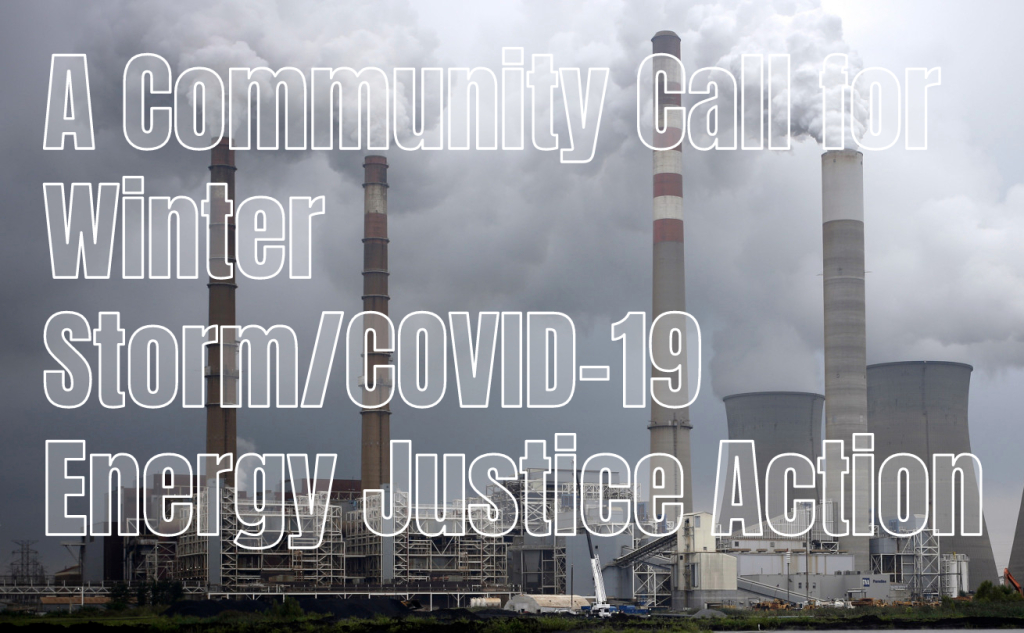
Following the devastating aftermath of Winter Storm Uri, San Antonio’s community advocates from across the spectrum--from climate, immigration, housing, Indigenous rights, and wildlife protection--are calling on Mayor Nirenberg, San Antonio City Council, and CPS Energy to implement a suite of reforms intended to make residents safer in an era of escalating climate crises.
“The fundamental message of climate action is that poor energy choices kill, oftentimes quickly in climate-related disaster, but also gradually over time,” said Sierra Club organizer Greg Harman. “As our proposals highlight, policy failures include failing to keep people safe in their homes through aggressive home weatherization, equitable utility rates, and reliable power for those reliant on home medical devices.”
The brutal statewide freeze in February left more than 200 Texans dead and nearly 300,000 San Antonio residents without power, many for days, all while the COVID-19 pandemic rages on. The Climate Action SA coalition and its allies called on Mayor Nirenberg and CPS Energy’s Board of Trustees to engage in open dialogue in October of 2020 about how energy-justice principles can contribute to an economic recovery from COVID-19. The City and CPS Energy’s response ranged from muted to hostile to demands that could have helped prepare San Antonio for Uri an and even mitigated some of the destruction.
Today’s open letter includes a range of proposed reforms, including rate reform, better, more inclusive energy planning, establishment of “resiliency hubs” and renewable energy in historically neglected communities, the permanent elimination of electric disconnections for those at 200 percent of the poverty level, and a demand for the closure of San Antonio’s last coal plant, which emits nearly a half of all the city’s climate emissions.
“The way rates are structured in San Antonio is anything but transparent. The rates are also anything but just,” said Trinity University professor emerita Dr. Meredith McGuire. Through a recent open records request, Dr. McGuire found that San Antonio’s most energy-intensive businesses have such low rates that they have no incentive to invest in energy-saving equipment or processes. Similarly, residents who have the most opulent homes in the city - with extremely high electricity usage - also benefit from huge discounts to their power bill. Those rate structures place unfair burdens on the more-than-half of all residential customers whose electricity usage is below the average.
"It is not in the public interest for our Public Utility to be promoting San Antonio’s ‘cheap electricity’ to energy-guzzling businesses and residents, at the expense of most of the people and local small businesses of San Antonio.”
These updated recommendations address San Antonio’s stark racial, social, and economic inequities, established and reinforced by decades of racist policymaking. More recently, we have seen allies emerging from within the City and CPS, but progress has been inadequate to meet the challenge—especially when it comes to protecting the needs of the most vulnerable and marginalized communities.
This is why the climate community of San Antonio continues to demand a better energy future from the City Council and CPS. In their open letter, climate justice advocates and subject-matter experts call for these recommendations to be implemented by City and CPS to better prepare San Antonio for an equitable, resilient future. In some cases, what is needed is a convening of community members and staff drawn from across the City bureaucracy, nonprofit sector, and CPS.
We must:
-
End the Policy of Utility Disconnections for Most Vulnerable Families
-
Move ‘Beyond Resilience’: Prioritize Weatherization, Demand Management, and Community Solar as Essential to a Just Recovery
-
Establish Community-Driven Resource Planning
-
Commit to No Rate Increases Until Our Utility Rate Structure is Fair
-
Shut Down the Spruce Coal Plant by 2030
“If energy decisions were made by those whose lives will be affected most by present inaction, CPS Energy and the City of San Antonio would have more inclusive, bottom-up, and inventive processes,” said Aaron Arguello, advocacy organizer with MOVE Texas. “Our utility should not only urgently transition to renewable energy by closing the Spruce Coal Plant, but that transition should be overseen by the public through meaningful public participation and oversight. The time to act is now.”